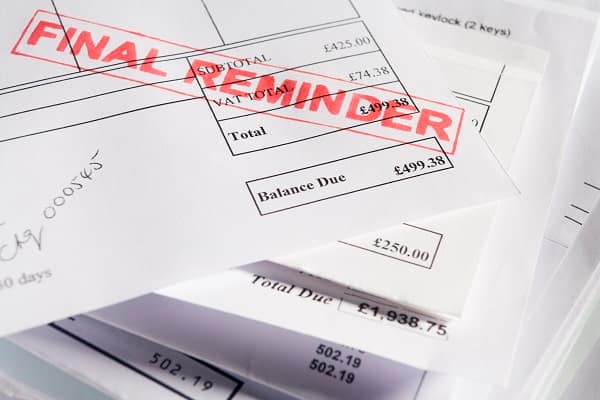Wage garnishment is an extremely frustrating reality for millions of hardworking people who are just trying to get by.
“Having your wages garnished is like having someone steal money from your paycheck every month,” attorney Rowdy G. Williams says. “ And while most people just roll over and accept it, there are actually some legal avenues you can use to potentially halt the garnishments.”
Here are five effective strategies to help you prevent or stop wage garnishment:
1. Understand why your wages are being garnished
The first step in addressing wage garnishment is understanding why it’s happening. Wage garnishment occurs when a court orders your employer to withhold a portion of your paycheck to pay off a debt. Common reasons for wage garnishment include:
- Unpaid debts: Credit card debt, medical bills, or personal loans that have gone unpaid for an extended period can lead to garnishment if the creditor obtains a court judgment against you.
- Child support or alimony: Failure to keep up with child support or alimony payments can result in wage garnishment. (This is probably the most common form.)
- Unpaid taxes: The IRS or state tax authorities can garnish your wages if you owe back taxes.
- Student loans: If you default on federal student loans, the Department of Education can garnish your wages without needing a court order.
Once you understand why your wages are being garnished, you can better determine which strategy to use to stop or reduce the garnishment.
2. Negotiate directly with your creditors
One of the most effective ways to stop wage garnishment is to negotiate directly with your creditors before or after the garnishment process begins. Many creditors would prefer to work out a repayment plan rather than go through the legal process of garnishing your wages.
Here’s how you can approach this:
- Step 1: Reach out to your creditor. Contact your creditor and explain your financial situation. Let them know that wage garnishment is causing financial hardship and propose an alternative repayment plan that fits within your budget.
- Step 2: Offer a lump sum settlement. If possible, offer a lump sum payment in exchange for stopping the garnishment. Creditors may be willing to accept a reduced amount if you can pay a portion of the debt upfront.
- Step 3: Get the agreement in writing. If you reach an agreement with the creditor, make sure you get the terms in writing. This will protect you if any issues arise later.
3. Seek legal advice
If your wages are being garnished or you’ve received a notice of garnishment, it’s a good idea to seek legal advice. An experienced attorney can review your case, explain your rights, and help you explore your options for stopping or reducing the garnishment.
Depending on the laws in your state, you may be able to file an objection to the wage garnishment. This usually involves proving that the garnishment is causing significant financial hardship. A judge will review your case and decide whether to reduce or stop the garnishment.
Certain things are exempt from garnishment, such as Social Security benefits, disability payments, and veterans’ benefits. If you believe your wages include exempt income, you can claim these exemptions to prevent garnishment.
Finally, if the creditor didn’t follow proper legal procedures when obtaining the garnishment order, you may be able to challenge the garnishment in court. Your attorney can help you file the necessary paperwork and represent you in court if needed.
4. File for bankruptcy
Filing for bankruptcy is a serious decision, but in some cases, it may be the best way to stop wage garnishment and get a fresh start. Bankruptcy can automatically halt wage garnishment through a legal process called the “automatic stay.”
There are two types of bankruptcy that may apply:
- Chapter 7 bankruptcy: If you qualify for Chapter 7 bankruptcy, many of your debts may be discharged, which means you’re no longer responsible for paying them. This can stop wage garnishment for debts like credit cards, medical bills, and personal loans.
- Chapter 13 bankruptcy: In Chapter 13 bankruptcy, you create a repayment plan to pay off your debts over a period of three to five years. While your wages may still be garnished to make these payments, the garnishment amount may be reduced to fit within your repayment plan.
5. Settle your debts before garnishment begins
If you’ve fallen behind on payments and are at risk of wage garnishment, taking action before the garnishment process begins can save you a lot of trouble. Once a creditor has obtained a garnishment order, it becomes more difficult to negotiate or settle the debt.
If you’ve received a notice that your creditor is suing you, don’t ignore it. Contact the creditor right away to discuss settlement options or a repayment plan. And if you’ve been sued, it’s important to attend any court hearings related to the case. This is your opportunity to present your side and potentially avoid garnishment by reaching an agreement with the creditor.
Adding it all up
Different states have different laws regarding wage garnishment, including limits on how much of your paycheck can be garnished and what types of income are protected. Some states also offer more generous exemptions than federal law, which could help protect more of your wages.
Research the wage garnishment laws in your state, or ask your attorney about any state-specific protections that may apply to your situation. Knowing your rights under state law can help you navigate the garnishment process and potentially stop or reduce the amount being taken from your paycheck.

